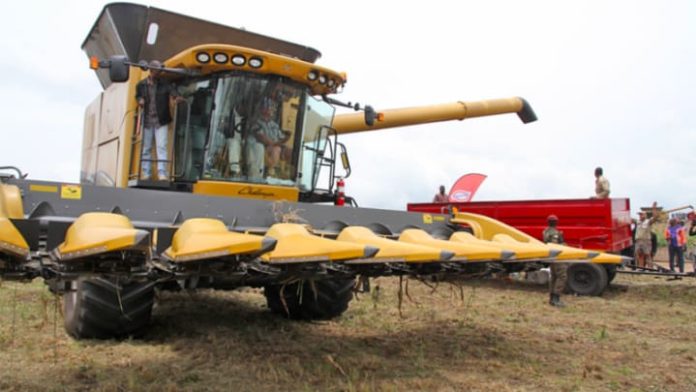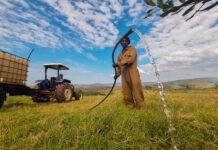The Federal Government of Nigeria has endorsed the Agro-industrial Processing Zones (SAPZ) – public-private partnerships aimed at developing priority value chains through developing infrastructure in rural areas, focused on finishing and transforming raw materials and commodities.
Minister of Finance, Budget, and National Planning Dr. Zainab Shamsuna Ahmed announced that African Development Bank and partners will mobilize US $520 million for Phase 1. Speaking during a high-level briefing session, Dr. Zainab reaffirmed the Federal Government’s commitment to put in place enabling policies and incentives to attract private sector investment in the Zones, to ensure successful implementation.
Special Agro-industrial Processing are a flagship initiative of the Bank’s ‘Feed Africa’ strategic priority. They aim to provide end-to-end solutions and services that de-risk production, processing, and marketing operations of private sector actors as they boost manufacturing and transformation capacity in production areas. The end result is improved livelihoods for millions in the rural areas as well as a reduction in poverty.
“The Federal government is committed to successfully implementing the programme to increase agricultural production, reduce poverty, and scale up job creation across the country,” Ahmed said.
Industrialization strategy
The participants, representatives of the African Development Bank Group, the International Fund for Agricultural Development (IFAD) and the Islamic Development Bank (IsDB), provided progress updates on the scheme, following their consultations with key stakeholders within the public and private sectors.
Director General of the African Development Bank’s Nigeria Country Department, Lamin Barrow said the zones would be rolled out in 18 African countries, including Nigeria. The Nigeria Special Agro-industrial Processing Zone programme consists of four mutually reinforcing components – infrastructure development and agro-industrial hubs management; agriculture productivity and production; policy and institutional development; and programme coordination and management.
“The Bank and its development partners are mobilizing $520 million to co-finance the first phase of the program in Nigeria, be implemented in phases across six geo-political zones,” Barrow said.
Ahmed said all 36 States in Nigeria and the Federal Capital Territory would be eligible to participate in the SAPZ programme. In addition to the Federal Capital Territory and 7 states – Kaduna, Kano, Kwara, Imo, Cross River, Ogun and Oyo – participating in Phase 1, several other states have indicated interest in the SAPZ programme. These include Bauchi, Lagos, Niger, Jigawa, Ekiti, Lagos, Taraba, Benue, Sokoto, Ondo, Nasarawa, Gombe and Kogi.
Prof. Oyebanji Oyeleran-Oyeyinka, Senior Adviser on Industrialisation to the President of the African Development Bank, said “the zone model is an explicit industrialization strategy to transform poor rural spaces into zones of prosperity, stem rural-urban migration, end human insecurity induced by herder-farmers clashes, and provide employment to Nigerian youth.”








